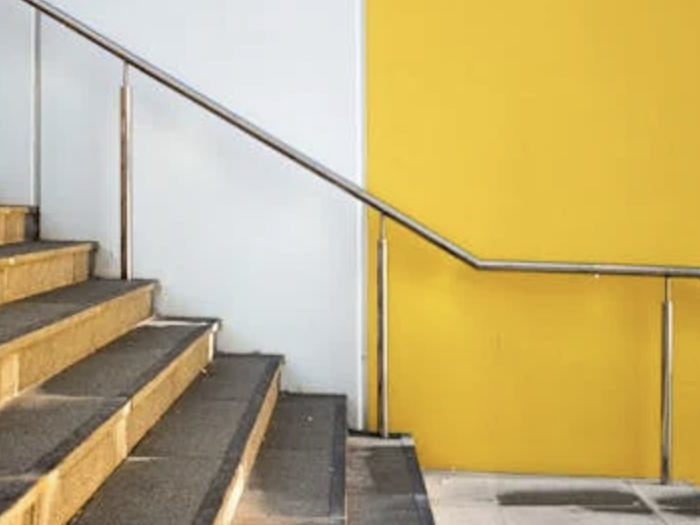SHERWOOD
Cognitive Behavioral Therapy
Assessment
Our Approaches
Autism Therapy
University and College Students
Therapy for Men
Teen Therapy
Child Therapy
Who we can help
Relationships Therapy
ADHD Therapy
OCD Therapy
Depression Therapy
Anxiety Therapy
What we can help with
383 Parkdale Ave #402, Ottawa, ON K1Y 4R4
343-451-7293
Schedule a complimentary video call today
Does My Child Need ADHD Therapy? What Parents Should Know
9/05/25
Author: Hannah Clark, Sherwood Psychology
Are you wondering if your child needs therapy for ADHD? Learn the signs, why early help matters, and how therapy can support kids and teens beyond medication.
If you’ve ever wondered, “Can therapy help my child manage ADHD symptoms?” You’re not alone.
ADHD can affect more than just academic performance—it impacts emotions and mental health, peer relationships, and family life. At home, parents may notice daily challenges such as difficulty following routines, frequent arguments, or intense emotional outbursts, which can feel exhausting, overwhelming, and sometimes isolating.
The good news? Therapy can make a huge difference.
Many parents worry that medication is the only treatment option for ADHD. In reality, therapy can play a crucial role in helping children build skills to manage symptoms and thrive at home and school.
Here’s what to look for and how therapy can help.

Signs Your Child May Benefit From ADHD Therapy
ADHD isn’t just about being “hyper” or distracted. It’s a brain-based difference in how kids manage attention, organization, impulses, and emotions.
If your child struggles with the following symptoms, it may be time to consider therapy:
- Difficulty with Focus & Organization: Forgetting instructions, losing homework, difficulty starting tasks, needing many reminders to complete tasks, or leaving chores unfinished.
- Emotional Dysregulation: Frequent meltdowns, frustration, or mood swings that seem “bigger” than expected.
- Behavioural Challenges: Interrupting others, having trouble waiting for turns, acting without considering consequences, or engaging in risky behaviour.
- Impacts on Daily Life: Teacher concerns, slipping grades, and family and personal stress over routines, homework, or other challenges.
Not sure if your child’s symptoms are normal or ADHD?
It can sometimes be hard to tell if your child’s symptoms are a normal phase of development or part of a bigger issue. A comprehensive assessment can help you determine if your child’s symptoms are a part of normal development or if they are experiencing challenges because of ADHD. Children and teens who struggle with attention, focus, or completing tasks, even without a formal diagnosis, can benefit from therapy too, learning strategies to manage these challenges and thrive at home, at school, and with friends.
Check out our Assessments page or contact us to learn more about ADHD assessments
Executive Function Skills: Why Kids and Teens with ADHD Struggle (and What Can Help)
No matter how hard your child may try to overcome ADHD on their own, they may still struggle. This is because ADHD is not a matter of willpower. It is a neurological difference.
Understanding how your child’s brain works and what works for them is essential to support them and help them thrive.
ADHD affects the prefrontal cortex, which is the “CEO” of the brain because it’s in charge of executive function skills like planning and decision-making. The prefrontal cortex also helps control dopamine, a brain chemical that drives motivation and reward. For a child with ADHD, this system can make them seek quick dopamine “hits,” which is why it can be harder to focus on tasks or resist things like screens, snacks, or other immediate rewards.
Executive function skills include:
- Planning
- Prioritizing
- Managing time
- Self-control
- Organization
- Getting started on a task
This means tasks like getting started on homework, organizing a project, or remembering what to bring to school can feel overwhelming for kids and teens with ADHD.
How Therapy Helps ADHD (Beyond Medication)
Therapy addresses skills and behaviours that medication alone can’t teach.
In ADHD therapy, we often work on everyday challenges—like getting through the morning routine without a million reminders. Parents will tell us their child starts getting dressed, but halfway through, ends up playing with the dog or sneaking in a quick game. Before anyone realizes, time has slipped away, and suddenly the whole family is in a mad rush to get out the door. It’s a stressful way to start the day for everyone.
If this sounds familiar, therapy can help by walking you and your child step-by-step through strategies that make life calmer and more manageable. The “magic sauce” is that your therapist makes the process fun and personalizes strategies to your child, because we know there’s no one-size-fits-all approach. And when you try something that doesn’t quite work, your therapist is there to help troubleshoot and tweak it—so you see real progress and a more peaceful household. It’s common for kids to resist strategies when they come from parents, which is why working with a therapist can help—children are often more willing to try new tools with a neutral, supportive guide.
Here are some examples of strategies that have worked for our clients:
- Turning routines into games (like racing the timer; “How quick can you get your clothes on today?”)
- Using visual checklists instead of constant reminders
- Breaking up big tasks into smaller, doable steps
- Using visual reminders like sticky notes, whiteboards, or alarms for memory
- Practicing flexibility with small, planned changes
- Learning calming tools together as a parent-child team
In the big picture, therapy can help by:
- Problem-solving unique classroom and home challenges to support your child’s needs
- Teaching strategies to break tasks and schoolwork into manageable steps
- Improving time management using evidence-based strategies
- Building emotional regulation and social skills through techniques like modelling and role-playing
Types of therapy that make a difference:
- Cognitive Behavioural Therapy (CBT): Helps kids recognize and change unhelpful thought or behaviour patterns, manage frustration, and improve coping strategies
- Skills Coaching: Focuses on developing skills and strategies for dealing with challenges, such as organization, planning, and emotional regulation, to reduce stress at home and school
- Parent Support: ADHD therapy isn’t just for children. Parents can work with therapists to learn strategies for setting routines, giving effective instructions, or reducing family conflict
To learn more about our child therapy approaches, visit our Child Therapy page.
Parent Coaching for ADHD: Why It’s Essential
When parents are part of the process, kids progress faster, and family life becomes easier.
Parents usually are the most influential adults in their children’s lives. Parent coaching can help you better understand your child’s brain and how to use strategies that work for them. Reinforcing helpful strategies at home can help your child develop consistency and build new skills faster.
Parent coaching can help you learn more about:
- How your child’s brain works
- How to create structure without constant battles
- How to support your child with school or homework challenges
- Positive reinforcement strategies that motivate change
- Strategies to help your child cope with big emotions
- How to manage your own stress levels while supporting your child (because parenting is hard!)

How Therapy Helps Kids with ADHD Thrive at Home and School
Therapy empowers kids to:
- Build confidence and self-esteem.
- Improve relationships with teachers and peers.
- Handle big feelings without meltdowns.
- Stay on track with schoolwork and routines.
With the right strategies and support, ADHD doesn’t have to hold your child back. The earlier your child starts receiving the support they need, the more it can help reduce long-term challenges associated with ADHD.
Ready to Take the Next Steps?
If these signs sound familiar, we can help. We offer ADHD therapy for children and families—you don’t need to figure this out on your own.
Contact us today to schedule a consultation and discover how therapy can make a positive difference in your child’s life.
Jessica Kurta Psychology Professional Corporation operating as Sherwood Psychology.
CONTACT
sherwood
Schedule your appointment and start feeling better today
Join Our Mailing List
Privacy Policy | Website By Morning Light Design
© 2025 Copyright Sherwood Psychology